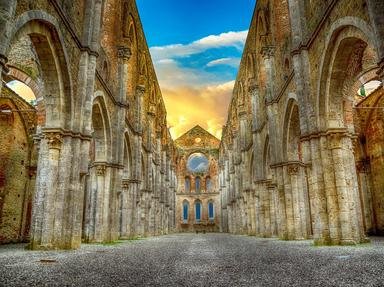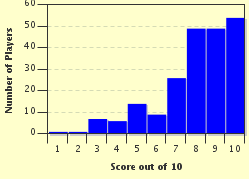Quiz Answer Key and Fun Facts
1. No one is quite sure if this figure is real or legendary, a king, chieftain or a knight, but he is said to have led the Britons against the Saxons in the 5th century. Born at Tintagel Castle, after he pulled the sword from the stone he became king.
2. This monk, not to be confused with the monk from Hippo, was sent by pope Gregory I in 595 to bring Christianity to England. He is considered to be the founder of our church.
3. In 732 this Frankish Mayor of the Palace saved Europe from further invasion as the result of defeating the Muslims at the Battle of Tours.
4. I am very grateful to this ruler! Although he is well-known for other "great" accomplishments, this Frankish king asked his chronicler to invent lower case letters.
5. I love hearing about how this king let the bread (or cakes) burn! Then I don't feel so bad when I make mistakes! Who was this "great" king of Wessex, who reigned from 871-899, and saved England from an invasion of a group of Vikings called Danes?
6. Sir William told us an interesting story about a Viking leader who became King of England. His followers believed that he was so mighty that even the tide would obey his commands. After the death of King Ethelred, which Danish leader was chosen by the Witan to be king?
7. A great conqueror, King William I of England ordered the survey of land ownership that became known as the?
8. When her father, Henry I, died without male heirs, she unsuccessfully tried to become the first Queen of England. Her efforts, however, led to the beginning of the Plantagenet dynasty.
9. Which "saintly" King of France, the son of Blanche of Castile, was canonized by the Roman Catholic Church less than thirty years after his death?
10. This spunky lady's husband, King Henry II of England, kept her under house arrest for sixteen years because she worked with their sons to overthrow him.
Source: Author
ponycargirl
This quiz was reviewed by FunTrivia editor
bloomsby before going online.
Any errors found in FunTrivia content are routinely corrected through our feedback system.

